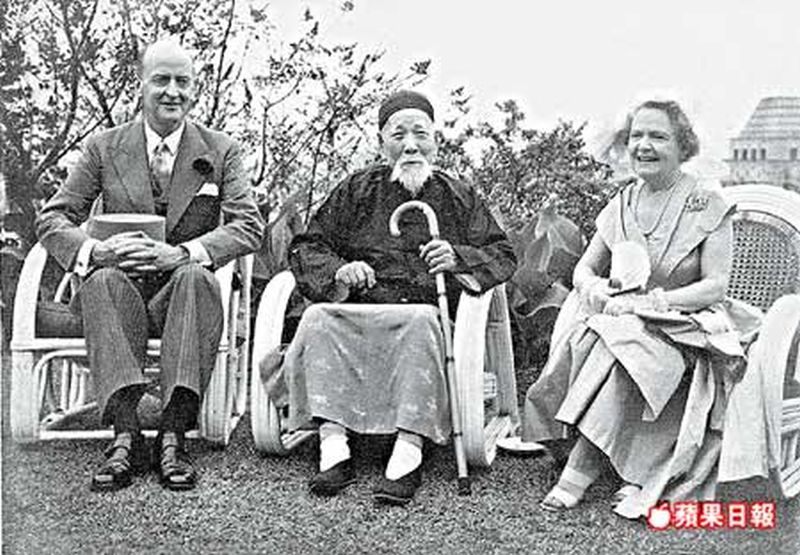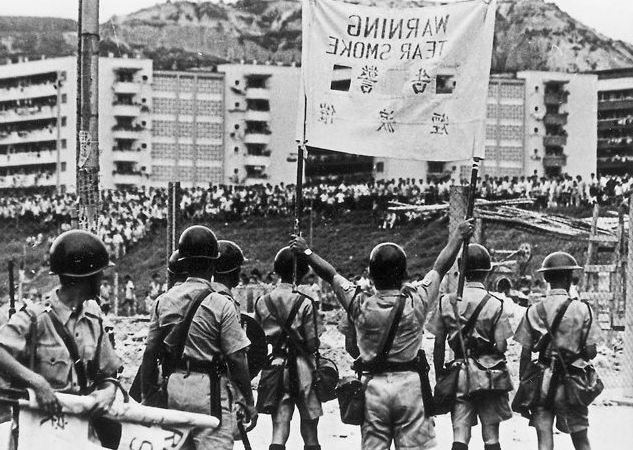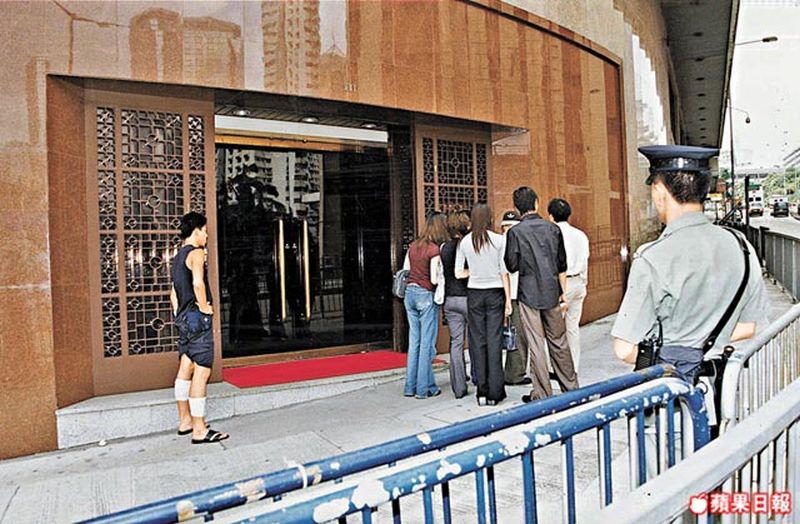By Adam Cathcart and Alexander Nicholas Shaw
For Cold War historians looking at the Occupy Central movement of 2014 and Xi Jinping’s recent visit to Hong Kong, a number of ironies are striking now that the shoe is on the other foot.
On September 29, 2014, the People’s Republic of China (PRC) warned the United Kingdom not to interfere in what it described essentially as a matter of internal policy; in July 2017 the PRC went even further, saying that the 1984 Joint Declaration was no longer a living document. Hong Kong’s former colonial overlords, according to Beijing, have no right to a say in the city’s struggle to carve out space for democracy amid a long history of authoritarian politics.

It seems clearer than ever that the government in Beijing has forgotten the situation in of the 1950s, a period when the PRC, a young state infused with revolutionary fervour, made every effort to interfere in what was then the British crown colony of Hong Kong under the banner of “people’s democracy.”
Some argue that current debates are a reaction to the peculiar long-term history of Hong Kong, in its transition from colony to democracy to colony once again. Even the Chinese Communist Party (CCP), while it endeavours to ignore the pro-democracy movement, roots the problem of Hong Kong in its colonial past. What we risk losing in such interpretations are how contemporary events represent a distorted reflection of the Cold War struggle for the hearts and minds of Hong Kong, specifically, Hong Kong immediately upon CCP assumption of sovereignty in Beijing.
Now that China is no longer a fledgling revolutionary power but a responsible stake-holding member of the international community, such ironies of history must be noted.
By late 1948, the inevitability of Communist victory on the mainland was obvious to the colonial government in Hong Kong. It was clear that Guangdong province would fall to the CCP armies, and that Hong Kong’s future would soon require settlement by either diplomacy or force.
The British Cabinet even approved a large reinforcement package of soldiers, artillery and aircraft to Hong Kong in May 1949, to provide some psychological relief against prevalent fears of external attack. But nobody in London’s corridors of power suffered any illusions as to Hong Kong’s fate in the event of a large-scale Chinese attack. Hong Kong was essentially indefensible.

From this time through to the administration of Margaret Thatcher, renowned for her resolute determination to maintain British overseas possessions, it was accepted that the survival of Hong Kong would depend as much on diplomacy as force.
In December 1948, Qiao Mu of the New China News Agency (Xinhua) informed a Reuters correspondent that CCP policy was to resolve the issue of Hong Kong by consensual means. This message was repeated to British Governor Alexander Grantham in back-channel contacts with Foreign Minister Zhou Enlai in August 1949. Zhou warned that the hard-liners in the propaganda ministry may agitate for the return of Hong Kong, but the foreign ministry would adopt a more pragmatic, business-like approach.
Similarly, in 1983, Zhao Ziyang reiterated to Mrs Thatcher that the Hong Kong question “must and can be resolved through bilateral discussions.” (The Thatcher archives on UK-China relations have been gradually declassified and digitised on the ’30 year rule’ precisely as the Occupy Central movement and controversies over Hong Kong have unfolded, a fascinating juxtaposition indeed.)
But while the CCP publicly endorsed a “hands off” policy, the Party’s focus was switched to more subtle influence in the colony designed to render the internal situation in Hong Kong untenable for the British.

This was the major concern for the intelligence and security services in Alexander Grantham’s government in the early 1950s. His security services included the Hong Kong Special Branch responsible for counter-subversion and counter-terrorism intelligence, a liaison officer from Britain’s Security Service (MI5), Alan Roger, and the Governor’s own Political Advisor. Their intelligence reports, released to the UK National Archives, reveal two principal areas of concern.
First, the British colonial administration feared the possibility of Chinese Communist subversion through the trade unions. To counter this possibility, an Illegal Strikes and Lockouts Ordinance rendered illicit any strike for purposes other than a legitimate dispute between employer and employees.
Grantham also enacted new regulations introducing compulsory registration of all societies, designed to combat the foundation of any political groupings with ties to foreign powers: most obviously, the Chinese Communist Party. According to the Governor, political representation in Hong Kong would only give the CCP greater opportunity for “disaffection and trouble making.”
Second, documents captured in police raids proved CCP activists to be engaged in subverting the education system, particularly trade union-organised workers’ schools, to radicalise potential revolutionaries. Again, Grantham revised colonial legislation to grant his administrative powers to shut down establishments under Communist control.

The first target of which was Tat Tak College – an institution of 600 students of South-East Asian origin – in February 1949. Tat Tak was feared to be indoctrinating revolutionary cadres from across South-East Asia.
Closing schools was one solution, but the threat remained that Chinese students in Hong Kong could return to the mainland for study and then return having being indoctrinated as a revolutionary “terrorist.” The term “terrorist” was no idle application: in spring 1950 a series of bomb attacks inspired by communist ideology (although not sanctioned by the CCP) caused panic throughout the city.
Also foreshadowing contemporary events, in February 1949 two movements emerged in Hong Kong protesting for “democratic” constitutional reform. More moderately, the European-dominated Reform Club proposed enlarging the Legislative Council to make it more than the rubber stamp of Grantham’s directives.
This clamour for democracy was taken further by the Reform Association, composed largely of Chinese membership, advocating the widening of the electoral franchise. Such a move would have fundamentally altered the composition of the Council, making British moves toward democratisation taken in the 1980s far more time to take root. But according to the UK intelligence services, the Reform Association was heavily infiltrated by CCP agitators. Thus the most radical pro-democracy lobby in 1949 was seen less as a political opposition movement than an instrument of subversion directed from Beijing.
Allegations of terrorism and subversion took on new meaning with the 1967 riots, when bomb scares became an almost endemic feature of life in Hong Kong. As in the early 1950s, but on a much more violent scale, workers’ disputes were used as a pretext to launch an attack on the colonial administration.

Following uncompromising British initiatives in response to violence and underground activity, the Xinhua News Agency attacked the hypocrisy of British rule. According to Xinhua, British rule has resulted in the silencing the voices of Communist media, schools and societies whilst claiming to support freedom of the press. Noting the lack of progress on democratic reform, the Communists charged Grantham with operating a “police state” to persecute Hong Kong’s majority Chinese population.
Taking these accusations at face value, the British regime was denying democratic rights to its citizens. The ordinances Grantham enacted were repressive, restricting freedoms of association and speech which form the fundamental basis of the postwar conception of political rights. Superficially this was the same arbitrariness in dealing with democracy in Hong Kong as shown by China 65 years later. The British may be gone, but Hong Kong still needs to be controlled, and its democratic impulses tempered and managed (with intelligence activity and violence if necessary).
But behind the surface, the situations remain different. Whilst introducing some characteristics of a “police state,” Grantham also embarked upon widespread welfare programs unprecedented in colonial Hong Kong. Schools, hospitals, infrastructure, and vital irrigation were brought to the general population. During the December 1949 Tramways workers strike, Grantham ensured that the employees’ genuine demands were answered, whilst the agitators attempting to hijack the disagreement for political ends were deported.
Naturally, Grantham was engaged in building a somewhat cynically-motivated “soft power” front in the Cold War designed to prove that Britain could provide Hong Kong with a brighter future than Beijing. However, his actions – like those later in Singapore – indicate how social rights can be seen as offsetting restrictions upon political freedoms.

Whereas the Chinese state today supposedly fears US or British influence in Hong Kong, no foreign power is standing on the edge of the New Territories waiting to take the area over. But Britain in the 1950s was instituting measures in a different environment – its goal was to prevent the hostile subversion of a massive neighbouring nation-state. (The documents indicate that this fear was not expressly anti-communist; British administrators were as cagey about the Kuomintang as they were over the communists.) Having grown up in the age of empire, British policy-makers genuinely believed that Hong Kong would eventually enjoy greater prosperity and democratic freedom by remaining a British colony, rather than falling under Beijing’s dominance.
The democratising actions of Grantham’s final successor, Chris Patten, are often seen as too little, too late, but they would indicate that this was not a totally unreasonable assumption. Curtailment of democracy was the price paid for freedom in a broader sense: freedom to live in a territory ruled by responsible and reasonably responsive government, rather than the hunger and arbitrary terror that drove families to flee from the South and Southwest of Mao’s China during the Great Leap Forward and Cultural Revolution.
In spite of the polarisation of the Cold War, and Britain’s use of Hong Kong as a base to reinforce its fight against Chinese troops in Korea, Grantham was anxious not to provoke China into more aggressive interference in the colony. Despite its often vitriolic attacks on British imperialism, the Xinhua News Agency was tolerated in Hong Kong. Not only the official mouthpiece of the CCP in the colony, it served a valuable role as an avenue for back-channel contacts and de-escalation.
Likewise, Grantham curtailed the activities of intelligence services such as America’s CIA which threatened to destabilise Anglo-Chinese relations. Although on the surface Hong Kong existed in a permanent state of Cold War embodied by mutual propaganda confrontation, Anglo-Chinese dialogues continued behind the scenes.

Looking to the present situation, the influence of the past is clearly apparent, the anomalous history of Hong Kong continues to play a major role in its political development. Just as apparent is the astonishing irony of the situation. Beijing may well demand that Britain refrains from interference now that China exercises control of the territory. Ultimately, Britain was equally firm in resisting Chinese intervention at the height of the Cold War.
But there the similarity ends, for British diplomatic protest in 2014 contains little in comparison with the form of Chinese interference in the 1950s and 1960s. During the Cold War, the Chinese Communist Party practised subversion in the name of democracy. By their own actions, they forced the colonial administration to react more slowly to the genuine democratic reform movement than may otherwise have happened.
In 1983-84, Thatcher’s Britain agreed with China that Hong Kong would return to the mainland in 1997, but also that continued dialogue was necessary between the two powers to safeguard the best interests of the colony. Deng Xiaoping went so far as to insist that a fifty-year period of stability would be needed in Hong Kong after the conclusion of British rule.
Xi Jinping’s unrelenting mantra of “One Country, Two Systems” for Hong Kong, without a single reference to the Sino-British Joint Declaration, seems to entirely blot out that Dengist hope.

A new generation of students is being raised “under the red flag” in Hong Kong, and tensions over political rights and autonomy are manifold. But there has been comparatively little UK-China dialogue on the situation, and even mild British statements about or trips by MPs to Hong Kong have been attacked by Chinese state media as arrogant interference.
During the Cold War, China was allowed a mouthpiece to express its opinion on the situation in Hong Kong, even as its institutions were carefully watched for anti-colonial subversion. Today, Britain has no interest in undermining Hong Kong, which is needed as a harbour for British goods, services, and – it is hoped – values of free speech. Given the legacy of history, should Britain not enjoy a similar right to express its beliefs?
Adam Cathcart is a lecturer in Chinese history at the University of Leeds, and a Non-Resident Senior Fellow at the China Policy Institute. Alexander Nicholas Shaw is completing a PhD in history at the University of Leeds, focusing on British intelligence in southeast Asia in the early Cold War. This article was originally published on the China Policy Institute blog.
